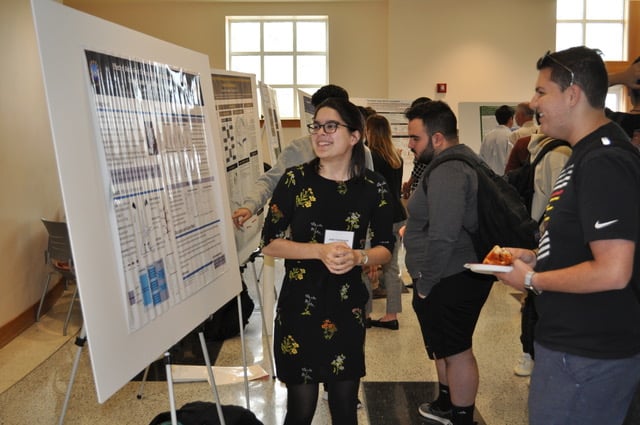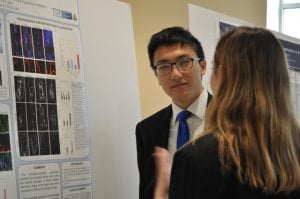On April 12, biomedical engineering students from Johns Hopkins University and the University of Maryland gathered on the Hopkins Homewood campus for the annual Biomedical Engineering Society (BMES) Mid-Atlantic Research Day. First held ten years ago as a research day for Johns Hopkins BME undergraduates, the event expanded to include universities from across the Mid-Atlantic region in 2013. Now co-hosted by the Johns Hopkins and University of Maryland BMES chapters, the Mid-Atlantic Research Day provides an opportunity for undergraduate students from regional universities to showcase their research through oral and poster presentations. Held in alternating years on the Johns Hopkins and University of Maryland campuses, the Mid-Atlantic Research Day has included participants from the University of Delaware and George Mason, Penn State, and Widener Universities in past years.
“At Hopkins, a lot of students do research on their own, but there are not many opportunities to present to our peers, faculty, and industry leaders,” said Tejasvi Desai, a second-year Hopkins BME student and BMES board member who helped organize the event. “This experience allows us to expand beyond our Hopkins bubble and learn about the great research at other schools. When we learn about each other’s work, we can promote new ideas.”


